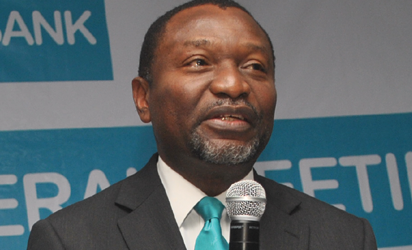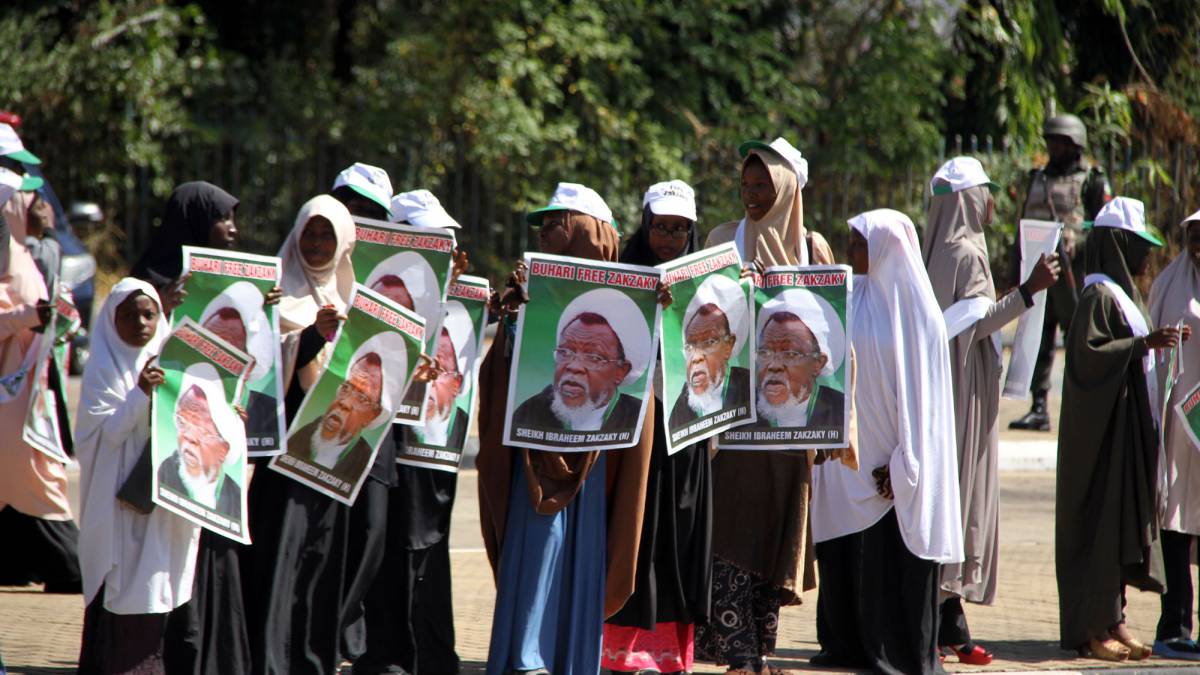Senator Udoma Udo Udoma, Hon. Minister of Budget and National Planning, outlines the plan of the Buhari administration to create a sustainable national econmy I remember the independence celebrations in 1960.
Even as a six-year old, I felt the significance of that momentous event. We were living in Aba at the time but my parents travelled to Lagos to witness the hoisting of the new Nigerian flag at the Race Course.
As one of our teachers said to us, this was not like the usual celebration of ‘Empire Day’, which we were used to. This was our independence as a proud people able to govern ourselves! As children, we were treated to large platefuls of jollof rice, a rare delicacy at the time. (In those days, you were considered very lucky if you were able to eat rice once a week, usually on Sundays.) In short, there was a general sense of euphoria and accomplishment. The future seemed bright and promising.
Disappointing trajectory But what has happened since that day? Our political and economic trajectory has been quite disappointing. At independence, we were virtually at a par economically with countries like Thailand and Malaysia, and not too far behind even South Korea. But these countries have since left us far behind. Just by way of illustration, in the past 30 years, Malaysia has reduced its poverty rates and current World Bank statistics indicate that less than 1% of Malaysians currently live in extreme poverty. Whereas, up to 46% of Nigerians still live in poverty.
Life expectancy in Malaysia, by World Bank statistics, is about 74 years, whereas in Nigeria it is about 53 years. Only about 60% of Nigerians have access to electricity, whereas virtually all Malaysians are linked up to public electricity.
And a combination of rising population, high unemployment and mono commodity dependent economy has resulted in a per capita gross national income of less than 30% of that of Malaysia! In recent years, rather than getting better, Nigerian economic performance started getting worse, particularly from 2014 when the crude oil price began its steep collapse.
Notwithstanding our disappointing history, I believe we can change, in a fundamental way, the Nigerian trajectory. Indeed, that is the commitment that President Muhammadu Buhari made during his campaign.
He promised to bring change to Nigeria. And we are totally committed, and we are working, tirelessly, to bring about that change. Workable, credible plan To achieve change, the first step is to have a workable, credible plan.
The Economic Recovery and Growth Plan (ERGP), launched by President Muhammadu Buhari in April, represents such a plan. This plan was developed after extensive consultations with various segments of the Nigerian society, as well as our development partners.
It is a plan that Nigerians can mobilise and organise around. Nigerians simply need to study and understand this plan. As we proceed in the implementation of this plan, Nigeria will change in a dramatic and sustainable way.
The ERGP focuses on three strategic objectives: Restoring growth, investing in our people and building a competitive economy by leveraging on science, technology and innovation, as well as the ingenuity of the Nigerian people.
As the ERGP explains to restore growth, and exit recession, we need firstly, to stabilize the economy, and secondly, to restructure the economy for growth.
The plan targets a 7% growth rate by 2020 driven by strong non-oil sector growth in agriculture, solid minerals, manufacturing, information technology and services.
The growth in the non-oil sector is to be supported by increased revenues from maximising income from a restructured oil sector.
In short, the aim of the ERGP is to change Nigeria from an import dependent, consumption driven and un-diversified economy into a producing nation where ‘we grow what we eat and consume what we make’.
Central to the success of the ERGP is the involvement of the private sector. As the ERGP states ‘In implementing the plan, the government will collaborate closely with businesses to deepen their investments in agriculture, power, manufacturing, solid minerals and service sectors, and support the private sector to become the engine of national growth and development’.
The ERGP is based on partnership with the private sector. In that way, we can tap into the improved efficiency that competition amongst private sector participants brings to the delivery of goods and services.
Under the ERGP, government welcomes private investments in all sectors of the economy, without exception. Innovation There are 60 specific initiatives identified in the ERGP and there is much on-going activity in government inspired by the ERGP. The Presidential Committee on the Ease of Doing Business has been focusing on removing bureaucratic constraints and making it easier to do business in Nigeria.
A number of executive orders have been issued to facilitate and speed up bureaucratic processes. The Industrial Policy and Competitiveness Advisory Council has been working on identifying and encouraging PPPs in infrastructure development and identifying and removing constraints to manufacturing, and other private investments.
Agricultural production has expanded with special task forces, some including state governors, working on improving the quantity and quality of some specific crops, such as rice.
The Budget is being aligned with the ERGP to ensure the priorities of the plan are properly funded. There is commitment throughout government, led by the President and the whole cabinet, to ensure the success of the ERGP.
An innovation, which is being introduced to stimulate private sector investments, is the Malaysian style labs. Let me explain what this means.
Basically, labs are working sessions which are held for several weeks and attended by all key stakeholders to establish implementation programmes and detail out what needs to be done to deliver on the ERGP.
During the course of the labs, key private sector investors are invited and encouraged to identify projects that they would be willing to invest in.
Because all relevant stakeholders, from both the public and private sectors, gather together in one place, they are able to fast track processes.
Arrangements to hold labs on key execution priorities are underway and we should be rolling out the first one in the next few weeks. All Nigerians are therefore encouraged to familiarise themselves with the ERGP as this is a plan whose implementation will ensure that our tomorrow is significantly better than our today.
Under the ERGP, our target is to be growing at 7% by 2020. Against this expectation we should all therefore look forward to a big celebration on the 1st of October, 2020, when we celebrate our 60th independence anniversary. And thereafter, given the trajectory we would be moving on by then, we should expect, if we stay focused, to move on to a growth rate of10%, or more, in the following years. What an exciting prospect.




